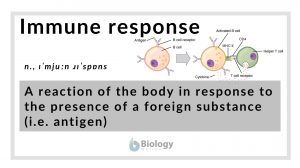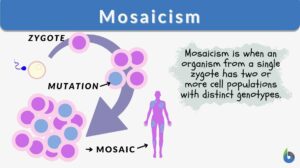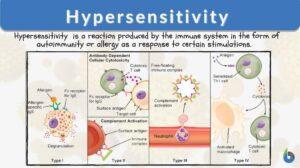Search Results for: antigenic
Antigenic variation
Definition noun, plural: antigenic variations (immunology) The changing of surface proteins by an infectious agent to evade... Read More
T-helper cell
Definition noun, plural: T-helper cells A type of T lymphocyte that assists by activating antigen-presenting leukocytes,... Read More
Immune response
Immune Response Definition An immune response is defined as the reaction of the body in response to the presence of a... Read More
Plasmablast
Definition noun, plural: plasmablasts An antibody-producing stem cell that could give rise to another of its kind or... Read More
Plasma B cell
Definition noun, plural: plasma B cells A large B lymphocyte that when exposed to antigen, produce, and secrete large... Read More
Streptolysin O
Definition noun An oxygen-labile, immunogenic hemolysin produced by or derived from some strains of... Read More
Memory B cell
Definition noun, plural: memory B cells A small, long-lived B lymphocyte that was previously exposed to a particular... Read More
Eubacteria
Eubacteria are prokaryotic microorganisms consisting of a single cell lacking a nucleus and containing DNA is a single... Read More
Hypersensitivity
Hypersensitivity Definition Hypersensitivity is the exaggerated immune response to protect the human from foreign bodies... Read More
Streptolysin S
Definition noun A nonantigenic, oxygen-stable β-hemolytic enzyme produced by some bacteria, especially... Read More
Inoculation
Inoculation Definition In Immunology, inoculation is defined as the process of introducing an antigenic substance or... Read More
Erythrogenic toxin
Erythrogenic toxin (Science: protein) toxin produced by strains of streptococcus pyogenes responsible for scarlet fever.... Read More
Rosette formation
rosette formation The in vitro formation of clusters consisting of a cell (usually a lymphocyte) surrounded by antigenic... Read More
Endocytosis
Endocytosis Definition What is endocytosis in biology? Endocytosis is a cellular process by which a cell internalizes any... Read More
Reservoir host
Reservoir Host Definition A reservoir host is a host that harbors the pathogen and serves as a source of the infective... Read More









